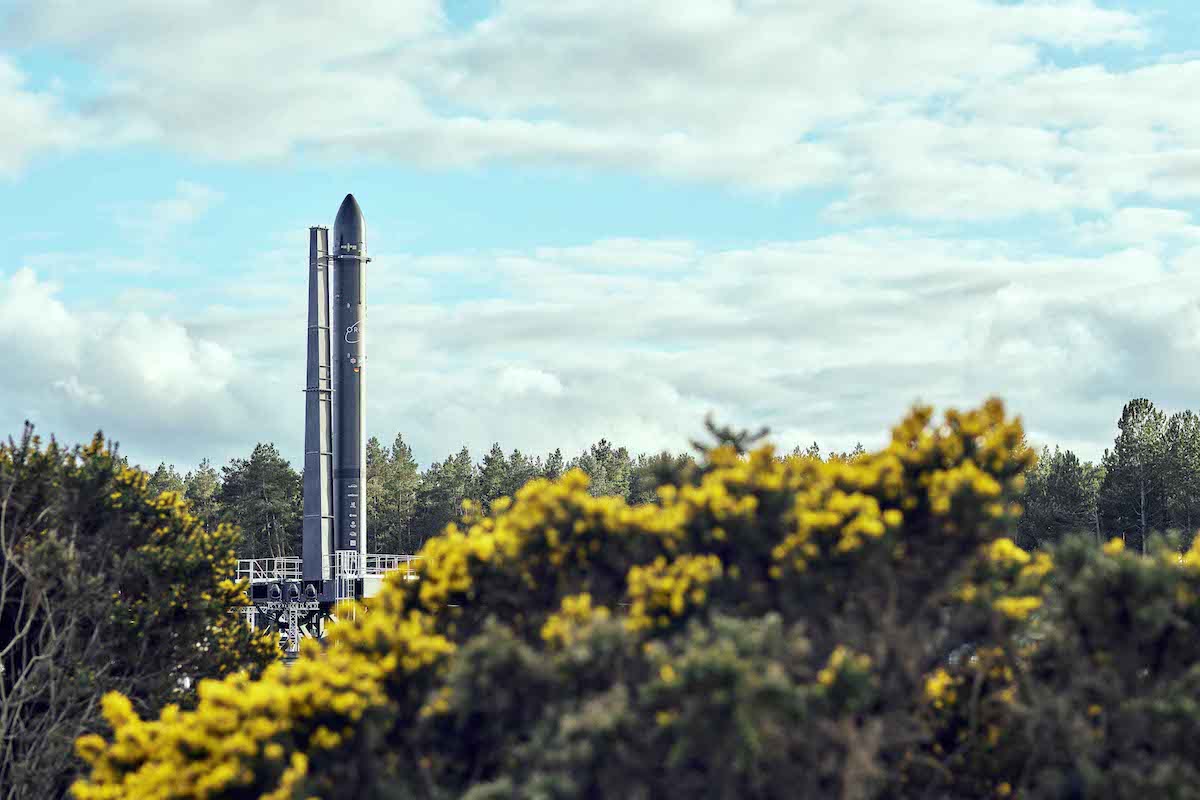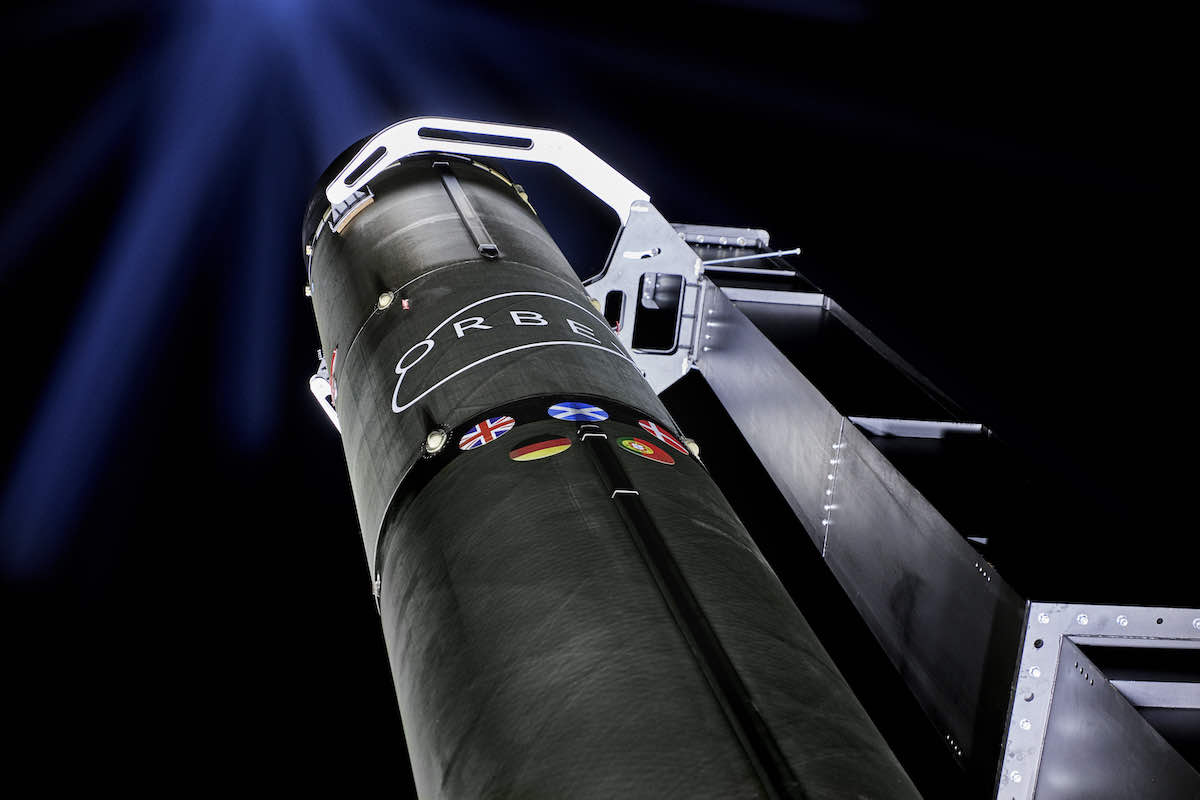Space News & Blog Articles
UK-launched rocket promises to transform microsatellite launch business
 A full scale-prototype of Orbex’s Prime launcher. Credit: Orbex
A full scale-prototype of Orbex’s Prime launcher. Credit: Orbex
The first launch of the Orbex Prime ‘eco-rocket’ from a remote launch pad in the Highlands of Scotland is expected at the end of the year or in early 2023. A full-scale prototype of Prime, billed as the world’s most environmentally-friendly rocket, was unveiled to the public for the first time this month.
Orbex Prime, a joint venture between the UK and Denmark, is the first of a new generation of European launch vehicles designed to launch mircosatellites to orbit.
Unveiling a full-size replica represented a major step forward for the British rocket company as it prepares for the first ever vertical rocket launch to orbit from UK soil.
A spokesperson told Spaceflitght Now that the company was “shooting for the end of 2022 or the start of 2023″.
He said: “There are three aspects which determine when the first launch can take place: readiness of the rocket, availability of a completed spaceport, and a launch license from the Civil Aviation Authority (CAA).
“All three are tracking well, but Orbex are only completely in control of the readiness of the rocket. So, it is really guesswork at this point.”
Prime is the first ‘micro-launcher’ developed in Europe to reach a stage of technical readiness and Orbex has now begun a series of dress rehearsals to develop and optimize launch procedures. To support this, it expects to announce an increase in staff shortly.
Earlier this year, Orbex revealed its first test launch platform at a new test facility in Kinloss, a few miles from the company’s headquarters at Forres in Moray, Scotland.
Prime is a 19-meter-long (62-foot), two-stage rocket that is powered by seven engines. The six on the first stage will propel the vehicle through the atmosphere to an altitude of around 80 kilometers (50 miles). A single, second-stage engine will complete the journey to low Earth orbit (LEO).
Uniquely, Orbex Prime is powered by a renewable bio-fuel/bio-propane supplied by Calor UK. The fuel significantly reduces the rocket’ss emissions compared to other similarly-sized rockets being developed elsewhere.
A study by the U’s’s University of Exeter showed that a single launch of Orbex Prime will produce 96% lower carbon emissions than comparable space launch systems using fossil fuels.
Prime is also reusable and has been engineered to leave zero debris on Earth and in orbit. It will be used commercially to launch groups of small microsatellites or slightly larger individual satellites.
 A full-scale prototype of Orbex’s prime launch vehicle. Credit: Orbex
A full-scale prototype of Orbex’s prime launch vehicle. Credit: Orbex
Josef Aschbacher, European Space Agency (ESA) director general, said: “I am deeply impressed with the speed at which the Orbex Prime rocket has been developed as the first full orbital micro-launcher in Europe. But I am equally impressed by the low-carbon footprint technology applied.”
Orbex Prime plans to launch from Space Hub Sutherland, a new spaceport being constructed on the North Coast of Scotland. It was the first vertical spaceport to receive planning permission in the UK and will be brought into operation as a European spaceport later this year.
It is also the first and only spaceport worldwide that has committed to being carbon-neutral, both in its construction and operation.
Chris Larmour, CEO of Orbex, said: “Unveiling the full-scale prototype was a major milestone for Orbex and highlights just how far along our development path we now are.
“From the outside, it might look like an ordinary rocket but on the inside Prime is unlike anything else. To deliver the performance and environmental sustainability we wanted from a 21st century rocket, we had to innovate in a wide number of areas — low-carbon fuels, fully 3D-printed rocket engines, very lightweight fuel tanks and novel, low-mass reusability technology.”
When you subscribe to the SpaceZE News Feed, we will send you an e-mail when there are new updates on the site so you wouldn't miss them.

